How do young people experience livelihoods as a human right in the context of West Africa?
In 2019, the Fund launched a participatory grantmaking initiative to resource youth civil society in Sierra Leone. The pilot project was also a tool to sense how partners were framing and prioritizing their work with young people. Of the initial ten groups selected, six were working to advance youth livelihoods. This sparked a reflection within the Fund: Why and how should a human rights fund support youth livelihood projects?
Four years later, the Fund’s Learning and Assessment team and Children’s and Youth Rights Program partnered with the youth rights consultancy Recrear to investigate how human rights and livelihoods intersected in the lives of young people in West Africa. Working with a team of ten youth co-researchers from Guinea, Liberia, and Sierra Leone, we set out to design and deliver a participatory, youth-led learning agenda for future research.
Now, we invite you to join us on our journey of discovery.
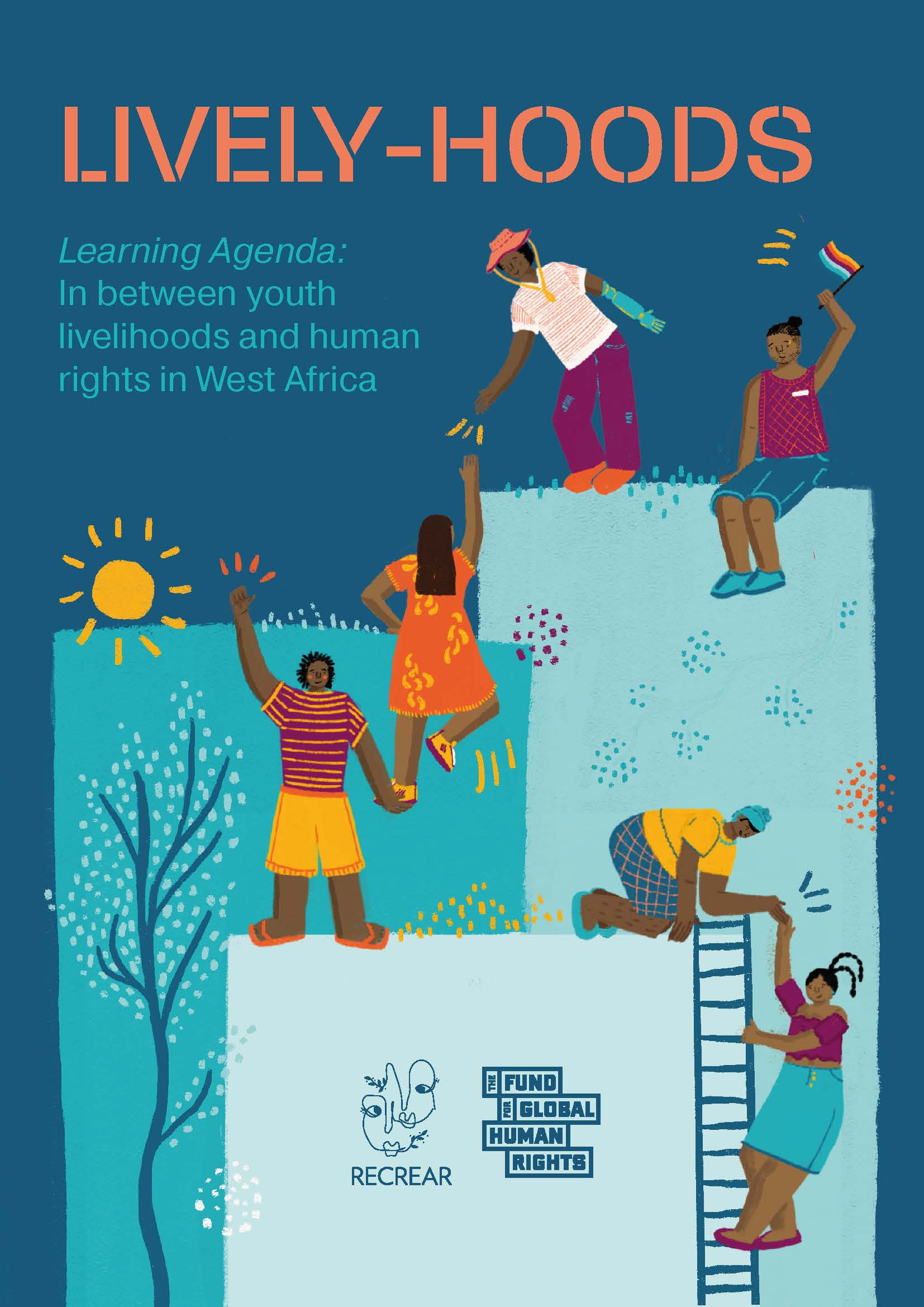
LIVELY-HOODS
Learning Agenda: In Between Youth Livelihoods and Human Rights in West Africa
Edited by Fiammetta Wegner and Gioel Gioacchino
About the Learning Agenda
This learning agenda is designed for civil society organizations, funders, youth activists, and anybody with a serious commitment to reflection and action when it comes to nourishing West African communities with healthier, satisfied, safer, and more-fulfilled young people.
The purpose of this learning agenda is to inspire curiosity, facilitate profound learning, and provide a roadmap for future research. This is a tool to frame questions, propose activities to address them, and inspire actions for meaningful progress in securing the livelihoods and fundamental rights of young people.
We organize the learning agenda around four main themes: from surviving to thriving, the link between education and access to the job market, discrimination, and entrepreneurship.
Each theme is unpacked through key stories that open up the conversation. They are followed by some reflective questions that we hope will inspire you and that might stimulate further explorations.
We focused on stories for their ability to touch emotions, extend our imagination, help us create empathy with people we have never met, grasp complex topics, and learn about how change happens. We trust stories’ power to produce, shape, and shift our knowledge.
Through the stories of Fatmata, Adam, James, and more, you’ll hear firsthand about the barriers, struggles, and abuses that young people in West Africa endure on a daily basis. You’ll also experience their diversity, creative power, and inspiring efforts to persist, innovate, and thrive. At the end of each story, reflective questions will compel you to dig deeper and interrogate your own contexts and experiences.
About the Co-Research Team
To design and deliver this learning agenda, we put out a call among the Fund’s partners and recruited a team of ten youth co-researchers (18 to 25 years old) based in Guinea, Liberia, and Sierra Leone.
Co-researchers were engaged for a four-month process: they received a stipend to train and practice how to research their communities through a participatory lens. They worked with the Recrear team to generate learning questions, practice storytelling, and carry out semi-structured interviews. The process culminated in an in-person workshop in Forécariah, Guinea, where the co-research team shared their stories with a group of 40 representatives from civil society organizations in West Africa.
[Read our learning and assessment director’s reflections on the convening in Guinea]
The co-research team comprised:
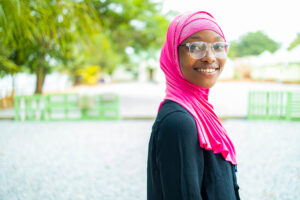
“My name is Agnes and I live in Kakata, Liberia. I am the founder and executive director at Releasing Girls’ Potential, a local organization supporting girls through mentorship. My ambition is to see a peaceful Liberia where youths can live and fulfill their dreams. I am also committed to eliminating female genital mutilation. I volunteer for the at-risk youth at Samuel Grime’s initiative, and I am an Ambassador at Young Ambassador for Peace-Liberia. I am training to become a journalist with a community radio station in Kakata.”
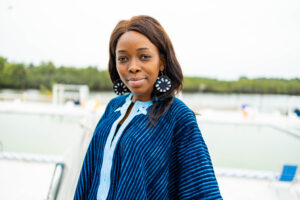
“I am Hawa Diallo, a young Guinean activist. For the last five years, I have dedicated myself to supporting young girls in my country. Since university, I decided to campaign and actively work against violence towards young girls with the Club of Young Female Leaders of Guinea, an NGO with over 500 members across the Guinean territory. I am currently the Administrative and Logistics Manager of the Club.”
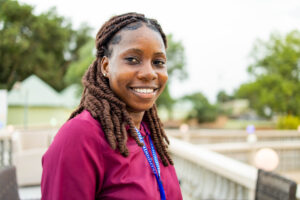
“My name is Faith and I am a 24-year-old Liberian. I am currently working as the acting Country Director for Action for Justice and Human Rights. I am trained as a Biologist and Epidemiologist. Above all, I am a Human Rights Activist.”
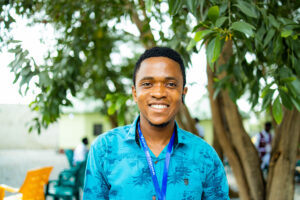
“I am the Co-Founder and CEO of TOMDACT SL Limited, Co-founder of GYNP school of technology, Co-founder and programs director of Global youth network for peace, and Executive President of the Mano River youth network. I am a certified business consultant, a website designer, a social worker, and a feminist and youth activist with seven years’ experience in the field of gender and inclusion, child protection, education, and sustainable peace building.”
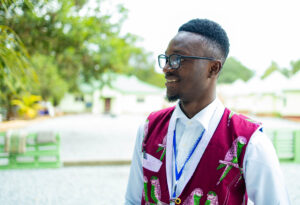
“I am a Liberian, passionate about advocating for the rights of children and youth. I also work to empower women economically. As a Minister of the Gospel, I spread spiritual teachings. Additionally, I serve as the Chairperson of the National Children and Youth Advisory Board (NCYAB-Liberia). I am also an Entrepreneur, and I founded and currently lead Formidable Empowerment Network (FEN-Liberia).”
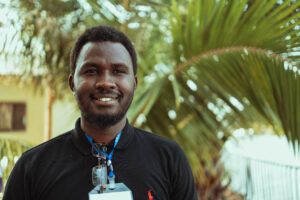
“My name is Ibrahima and I come from the Kindia region of Guinea. After completing my university studies in public administration, I ventured into the world of associations working with the MAEJT (African Movement of Children and Young Workers). In 2018, I founded ADEPE (Mouvement Africain des Enfants et Jeunes Travailleurs), an organization working to build young peoples’ power and protect their rights while advocating for a healthy environment.”
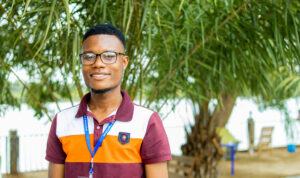
“I am a co-founder and president of Pekin to Pekin Tok for Human Rights. Additionally, I hold the role of founding member and Regional Secretary General of the Mano River Youth Network. In the business realm, I am the founder and CEO of BiSAJ Farms, focusing on agribusiness. Furthermore, I co-founded MASI Investments.”
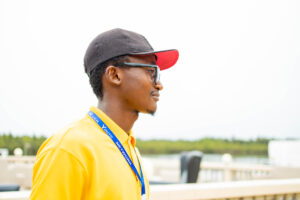
“I am a problem-solving innovator and passionate advocate for sustainable development, youth empowerment, and inclusivity. I address social and environmental issues, particularly in the areas of disability rights and inclusivity. I also provide entrepreneurship and skills training to young people to empower them and create more opportunities for their growth and development.”
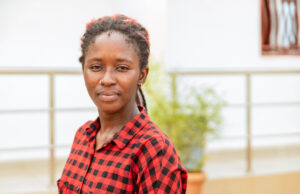
“My name is Fatmata M. Kamara. I’m a final-year student of Fourah Bay college. I am a photographer and I co-founded Girls Behind the Lens, a group of young female photographers. I am committed to fostering creativity and creating employment for young women and girls in Sierra Leone.”
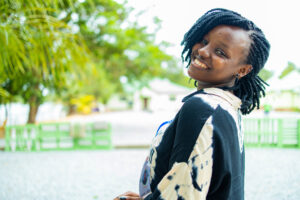
“I am a Sierra Leonean third-year student at Institute of Public Administration and Management, (IPAM) University of Sierra Leone, where I am pursuing a BSc in Public Sector Management. I am a youth and child’s advocate with over seven years of experience in the field of advocacy and youth activism.”
Opportunities for Deeper Learning
To us, this learning agenda is effective if, as you read, you get to ask yourself something new, challenge your assumptions, go out there and have meaningful conversations with young people, or come up with new project proposals. We hope this publication will be a springboard toward more community-led research, which takes seriously that the lack of sustainable livelihoods is one of the root causes for human rights violations toward young people in the region.
We invite you to engage further with this learning agenda by organizing research activities and workshops to contextualize the seed of this research in your community. If you are interested in structuring a deeper participatory research process, we offer a companion guide to learning activities, available in both English and French.
These activities are designed as a research journey to develop knowledge, insights, and new paths for exploration at the intersection between livelihoods and human rights.
Sign up to our newsletter
Add some impact to your inbox.
By submitting this form, you accept that your data will be stored and processed in line with our Privacy Policy.


